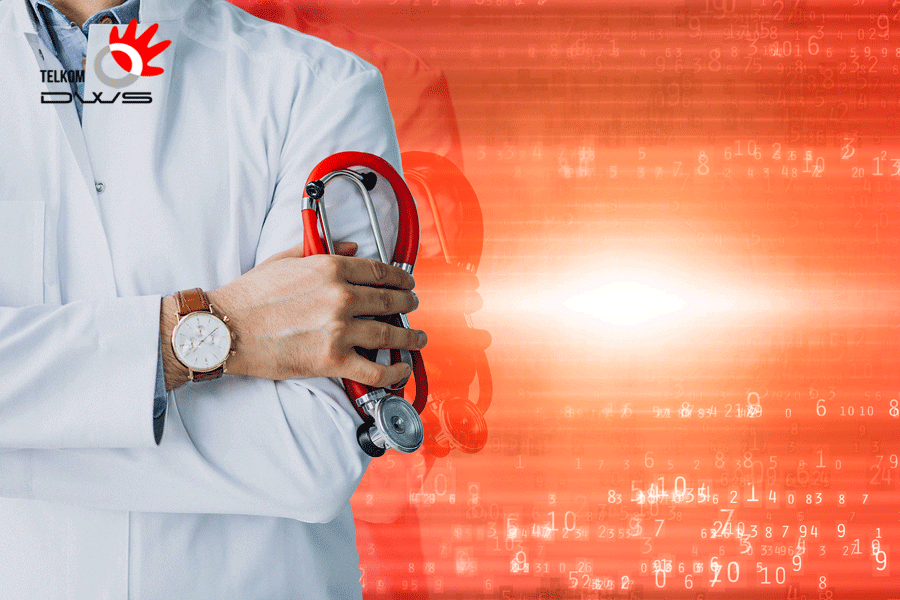04 October 2021
A Helpful IoT Tool for Fighting against Cardiovascular Diseases
How is your heart doing?
As much as we need to check up on our metaphorical hearts, it seems that our literal, physical, beating heart also needs the same amount of care. One out of fourth deaths all over the world is caused by cardiovascular disease (that is, diseases related to the heart and blood vessels). In fact, cardiovascular problems are the primary cause of deaths not only globally, but also nationwide in Indonesia. WHO’s 2014 data revealed that cardiovascular disease accounts for 37% deaths in Indonesia.
In addition to campaigning healthier lifestyle, only good quality of healthcare can tackle the concerning issue related to cardiovascular diseases in Indonesia. Nevertheless, current Indonesian healthcare hasn’t seemed to be adequate. On a nationwide scale, there are only 43 doctors per 100,000 persons [MoHRI, 2015]. Lower level of adequacy can be found in more particular regions (especially rural areas), where the availability of medical professionals is far much rarer.
Technology Can Mend Our Hearts
With the current development of technology, we don’t have to wait for something like Iron Man-level artificial heart to help us in the battle against heart-related diseases. Nations with inadequate number of medical professionals can opt for something simpler: the utilization of Internet-of-Things (IoT). From cloud-connected medical devices to smart mobile applications, IoT has proved to benefit patients, medical professionals, and healthcare providers in so many ways.
According to Dr. Rajashekhar Karjagi and Manish Jindal from Wipro.com, there are many benefits that healthcare systems can get from IoT. First of all, since IoT decreases the number of physical visits and admissions, it reduces the cost of both using and maintaining healthcare services. Secondly, IoT helps medical professionals improves for accuracy during a treatment and lowers the time needed for diagnosis. Aside from these, IoT opens up opportunities for proactive treatment, better asset management, and lower chance for error.
My Kardio: A New Hope from IoT for Indonesia’s CVD situation
Indonesian healthcare system has benefitted from the use of IoT for the past few years, and a relatively new IoT innovation will help Indonesia to handle cardiovascular diseases. Dubbed “My Kardio”, the website/mobile app uses M2M learning and kNN algorithm to report health diagnostics of a cardiovascular patient to cardiologists with LoRa (Long Range) technology, allowing early detection and more accurate treatment of heart-related diseases.
More specifically, My Kardio works in three phases. In the first phase, which takes place in the patient site, nurses in clinics will diagnose a patient’s condition through the use of EKG/ECG & sphygmomanometer. Connected to IoT via USB port, these devices send data for AI-equipped IoTs to perform diagnosis, which will be sent to My Kardio platform. In the second phase, My Kardio gathers and saves the data, then the data are displayed in both mobile and website app. Finally, these data will aid human cardiologists perform diagnosis according to their expertise.
There have been tests on My Kardio’s performance, involving 4 locations and 85 patients in Jakarta’s suburban areas. According to the test result, My Kardio has a high level of prediction accuracy (76.47%). The machine learning execution is also time-efficient as the process only took a mere 1 second. In addition, only 8.97 seconds were needed for the transfer time from the side to server. Based on these quantitative results, My Kardio can provide data with high accuracy and time-efficiency.
Qualitative evaluation has also been conducted through interviews with cardiologists. According to the interviews, cardiologists think that My Kardio will provide great assistance for regions with few cardiologists as these patients can consult experts whose face-to-face consultation services are only available in major cities. Aside from this, My Kardio eliminates the urban traffic hassle that one needs to go through before a consultation, allowing patients and doctors to have more flexible and time-efficient consultations.
Is this information helpful?
